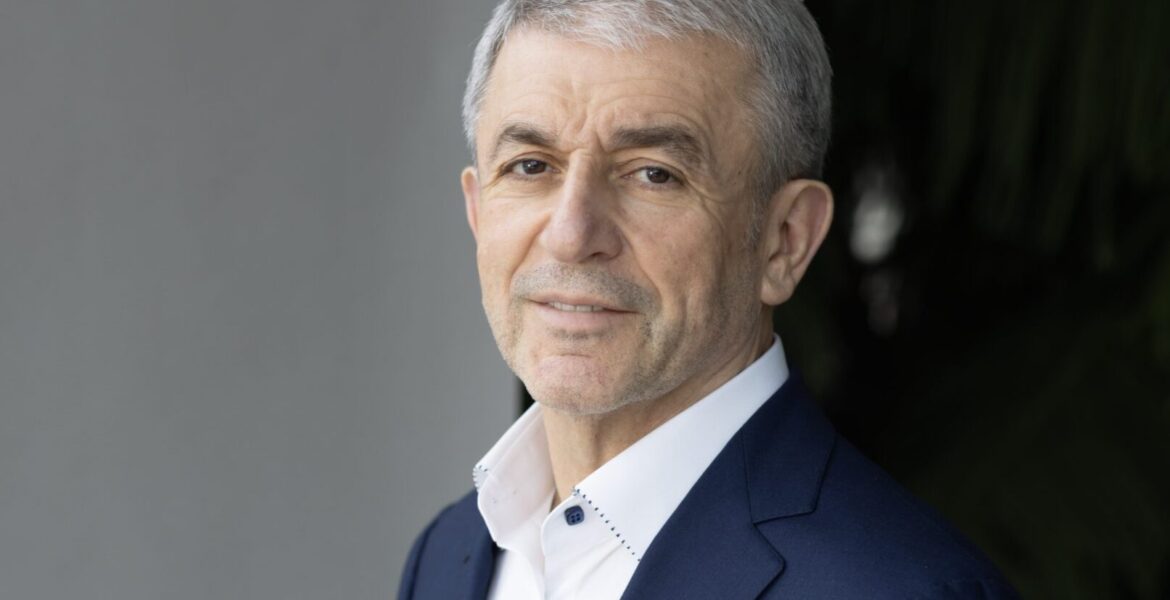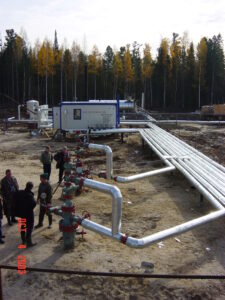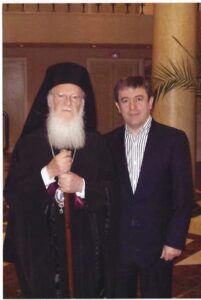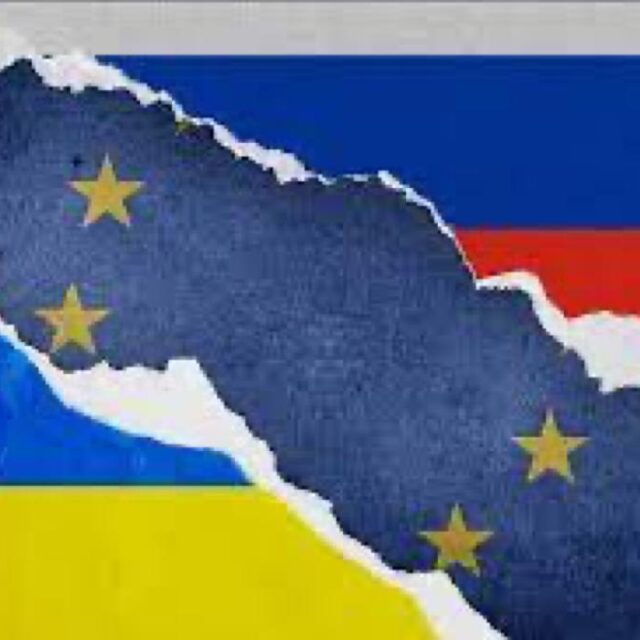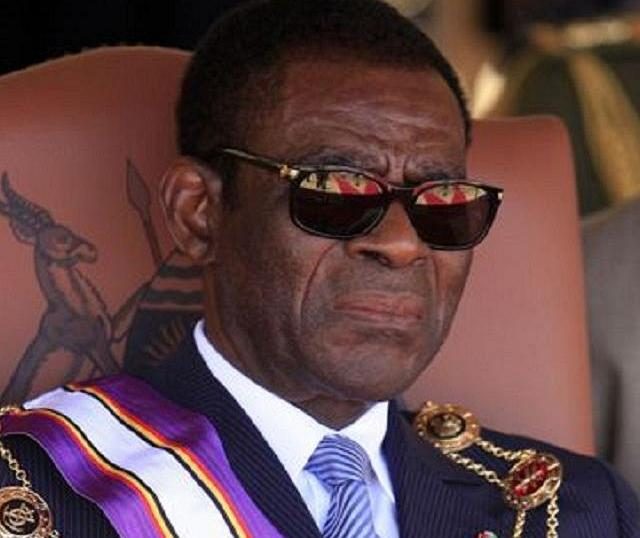EU Political Report has been privileged to hold an exclusive meeting with the successful British investor and international businessman from Georgia, Tamaz Somkhishvili, and this is part two of our interview that faithfully records a description of his career.
PART TWO – The Development of a Career in Energy
In 1991 Tamaz Somkhishvili had a fortunate meeting with Viktor Dolgov, Deputy President of the Lukoil Company. Dolgov was then responsible for opening a Lukoil branch in Tyumen and after its establishment, a joint venture was registered between “Lukoil-Tyumen” and Tamaz under the name CJSC “Lukoil S” (“Lukoil Service”).
“I became the owner of the company and its general director,” says Tamaz. “After opening the company, I acquired several mobile petrol stations. So, in parallel with the highly profitable confectionery business, I entered the oil business. I went on to purchase crude oil, process it at the Perm Oil Refinery, and sell the resulting petroleum products.”
In 1993, recognising the successes of the Tyumen branch, the President of Lukoil Company Vagit Alekperov proposed to Tamaz to create the company “Lukoil Market.” Thus, Tamaz Somkhishvili became a co-founder and commercial director of the new company, which focused on supplying the cities of Langepas, Uray, and Kogalym with consumer goods and food products, primarily sourced from France, Germany, and the Netherlands.
In 1994, the company Rosnefteexport CJSC was established, with Tamaz Somkhishvili owning 15%, Lukoil 35% and Rosneft 50%. Tamaz became the general director of the new company, whose main area of business was coordinating oil supplies to the Belarusian refineries at Mozyr and Novopolotsk, where oil from Rosneft and Lukoil was processed, in addition to the further sale of petroleum products. “After a year, it became clear that Rosneft was not fully engaged in the development of the joint company, so I decided to buy out the 50% equity owned by Rosneft,” says Tamaz.
In the restructuring of post-Soviet businesses that time, debt delinquency was a huge problem. Agricultural companies were unable to pay for needed petroleum products; consequently, oil producers could not settle their debts with energy companies for electricity consumed. Thus seeing an opportunity, at the end of 1995, Tamaz Somkhishvili began to buy out the debts of oil companies to energy companies, specifically the debts of Lukoil and Nizhnevartovskneftegaz to Tyumenenergo, which was then headed by Valentin Fedorovich Bogan. Subsequently, a contract was made with Surgutgazprom, led at that time by Yury Ivanovich Vazhinin, to buy out the debts owed by Tyumenenergo for gas supplied to the Surgut GRES.
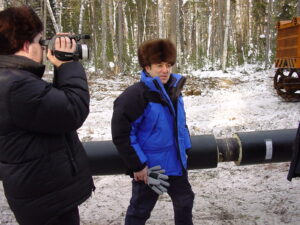 |
“Debts were purchased at significant discounts and in instalments,” says Tamaz, “The scheme was complex, with the most important aspect being the coverage of Lukoil’s electricity costs through crude oil payments, which amounted to 250,000 tons per month.”
|
“The chain of debts looked like this: oil producers owed energy companies, energy companies owed gas producers, gas producers owed transport companies, and so on. Each offered a discount ranging from 12% to 18% of the full debt. At that time, everyone had goods, but there was little money. Following Lukoil was Nizhnevartovskneftegaz whose oil production was 60% lower than that of Lukoil, but electricity costs were almost the same due to the fact that the water content of the extracted fluid through its wells was up to 93%, so water had to be injected back into the reservoir using compressor stations.”
Successfully implementing a debt buyout scheme, Tamaz Somkhishvili soon acquired a controlling stake in the Odessa Oil Refining Plant from Alexander Zhukov (Synthesis Company). “Each month I sent up to 250,000 tons of oil for processing, part of which was sold on the Ukrainian market, while the majority was exported,” says Tamaz.
“In 1999, I decided to engage in the challenging business of oil extraction so I established two companies: “Tomsk Oil” and “Danao Engineering.” I assembled a team of specialists including geologists, technologists, engineers, and mechanics. The team included Yuriy Anastasievich Bratishko, the executive director of the first American-Russian joint venture, Polar Dawn; Vladimir Mikhailovich Ignatenko, general director of Megionneftegaz; and Marat Midhatovich Arslanov, deputy general director of the Tobolsk Oil and Chemical Plant for capital construction, who brought along serious specialists in exploration, development, and oil extraction.
The company “Tomsk Oil” successfully found reserves of 16 million tons of oil and 11 billion cubic metres of gas at its two oil fields in the Tomsk region: “Verkhne-Salatskoye” and “Yuzhno-Mildzhisnoye.” In just two years, a massive infrastructure was created in the impenetrable taiga forests and swamps, including a 70-kilometre oil pipeline, a 40-kilometre road, 17 wells, a central oil preparation facility, a gas-piston power station with a capacity of 3 MW, as well as accommodation for 50 people, a repair and mechanical shop, an oil depot, a laboratory, and a gas station.”
|
“In parallel with the development of the Tomsk field, Tamaz Somkhishvili conducted exploratory geological surveys in the Nenets Autonomous Okrug in the northern part of the Arkhangelsk region on the licensed land through the company “Danao Engineering,” where Yuriy Anastasevich Bratishko served as the general director. The well in the Nenets Autonomous Okrug had a flow rate 5-7 times that of the “Tomskaya Neft” well. The fields were located in the permafrost zone, which made it impossible to lay the pipeline underground. Therefore, engineers laid the pipes above ground on special supports. The company confirmed oil reserves of 35 million tons. The depth of the first well was 4,878 meters, while the daily flow rate was 280 tons compared to 30 tons from a “Tomskaya Neft” well, which reached a depth of 2,750 metres.
In 2004, Tamaz Somkhishvili successfully implemented a new business idea by establishing the company “Regionenergogaz” for the construction and operation of gas-piston power plants using associated petroleum gas (gas lost during the extraction process). Power plants were thus built in the territory of Lukoil’s oil field to produce and supply electricity to oil companies. “I signed a contract with Jenbacher (owned by General Electric), and in just over a year, I constructed a gas-piston power plant with a capacity of 36 megawatts using Jenbacher gas-piston units and distribution devices with Siemens automation,” says Tamaz.
“Being in the oil business, I started thinking about environmental issues earlier than my colleagues. Thus, in March 2006 I was the first in Russia to sign an agreement with the World Bank, represented by Kristalina Georgieva (current Managing Director of the International Monetary Fund), which provided for the reduction of harmful emissions (APT) and greenhouse gases into the atmosphere in accordance with the Kyoto Protocol.”
In 2005, Tomskaya Neft was sold to RussNeft, owned by Mikhail Gutseriev, and Danao Engineering was sold to Lukoil.
In 2006, the Moscow Government issued a decree on the design and construction of a multifunctional building on Kosygina Street. From 2008 to 2010 (1 year 8 months), Tamaz Somkhishvili built the elite office and residential complex known as ‘Family House’ with an area of 29,000 square metres in classical style. Tamaz’s business in Russia ended in 2010 with the completion of this project, and he subsequently concentrated his business development projects and investments in the UK. Tamaz Somkhishvili founded the company “AirplaneTechnics.” Vincenzo Morelli, with 35 years’ experience at “Lufthansa Technik”, was invited to be the chief manager. Within 10 months, a maintenance centre for civil aviation was built at Tbilisi Airport, designed to service Boeing and Airbus civil aviation aircraft.
Tamaz later made a strategic decision to establish an Aviation College under the motto “For the Success of Tomorrow.” Its goal was to provide the youth of Georgia with the opportunity to receive high-quality training within the framework of an internationally recognized programme, leading to certification for maintenance of civil aviation in international airlines. The college signed an agreement with the licensed European Aviation Safety Agency “ISTITUTO SCOLASTICO SAN CARLO,” located in the city of Verona, Italy, under which a joint training programme was launched in Tbilisi. 35 students participated in the training programme, who were sent to Germany, Switzerland, Italy, Turkey, Dubai, and Kazakhstan to gain practical skills.
Prior to the COVID-19 pandemic, the company was successful, working with aviation companies around the world. During the pandemic, the company’s operations, like many other airline-related operators, declined significantly.
Q: Mr. Somkhishvili, we have seen your business career has been quite varied, mostly in the energy sector, where you created significant infrastructure in oil and gas, but extending to Europe and projects in the US. I see that you’ve been out of Russia for the past 17 years. Are you pursuing new fields of investment these days, in Europe or abroad?
Tamaz: Yes, of course. In the 1990s, the post-Soviet economy was developing rapidly, and huge corporations worldwide were eager to invest in Russia due to the huge potential in the oil and gas industry. I was young and ambitious, and I succeeded in completing several big oil and gas projects that I am still very proud of. I’m still involved in several business ventures in the West, mostly new technologies, telecoms, and some industrial minerals, in ferrochrome, for instance, which is a key component of stainless steel. There are some interesting developments that I’m interested in here and abroad.
Q: I’ve noted many references to your philanthropic projects, such as supporting orphanages and even some musicians in Georgia who became quite famous. Can you tell me about the charity activities you are involved in? I see you purchased and donated the Georgian Orthodox Church to the community here in London, in 2009.
|
Q: Can you tell me about your involvement with Gerard Depardieu? I’ve heard your company Rosnefteexport had something to do with Envy of the Gods.
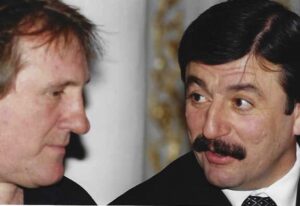 |
Tamaz: Oh, that’s true. Back in 2000, we, Rosnefteexport I mean, underwrote Vladimir Menshov’s movie, in addition to other charitable contributions. It was really a pleasure for me to meet and interact with Gerard and ultimately, see that project become a successful production.
|
Q: Georgia seems to do well in weightlifting, wrestling, judo and shooting in the Olympics. Can you tell us about your contributions in any of these fields?
Tamaz: That’s true, we won a medal in women’s shooting in Beijing in 2008. In fact, I’ve taken an interest in sport shooting since I was young and then in the days of my military service. So I decided to help build a European-level shooting club in Tbilisi, featuring armories, shooting ranges, and modern infrastructure for athletes. I’ve also been very active in some martial arts since I was young, judo and sambo for example. And from 2017 to 2021 I served as the president of the National Federation of Sporting Shooting of Georgia.

